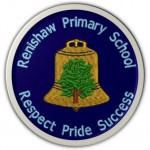Welcome

Dear Parents, carers and members
of the Renishaw community...
Welcome to Renishaw Primary School
We firmly believe in doing things, “The Renishaw Way”. Doing what is right for our children our staff and our community. We are fully committed to encouraging positive and active mind sets in the children as well as in the staff and in doing so foster a culture of support, not blame. The chance to try new and innovative things but accept that mistakes will be made and learned from. Our philosophy is that education should be a partnership between home and school and actively encourage the involvement of parents in all aspects of school life. An effective link between home and school will help your child to have a successful time at our school.
We believe that it is vitally important that we recreate the security, care and understanding that you give your child at home. We also firmly believe that education is a partnership between home and school and we regard you as an active partner in our school’s development and value your interest and support in moving the school forward.
Renishaw Primary School is a caring and nurturing community school and provides a warm welcome for pupils, parents, staff and governors, providing education for pupils aged 3 to 11 years where children and families are put at the centre of everything that we do and while we don’t always get everything right first time.
What we do guarantee is, we will always listen to and work with our families to make sure that we put it right and make sure we learn from it and work hard to ensure that it doesn’t happen again.
The school has a child centred, community ethos and has created a caring atmosphere in which children are valued and given the confidence to grow academically, physically as well as emotionally. Staff at Renishaw are carefully selected to become “one of us” so that they fit into our team as well as bringing the right qualities to help to support the children. They are dedicated and work hard to enable each child to reach his or her potential.
At Renishaw we provide a broad and balanced curriculum which is carefully planned to meet the needs of all children. We have high expectations of all adults and children involved in school life, and encourage everyone to do their best. Nobody’s role is any less important than anybody else’s. Indeed, we actively encourage our team to support and help to develop one another’s talents. We grow our own staff so that everyone buys into the culture.
We look forward to a long and happy partnership with you and hope this booklet contains all the information you need to help your child make a happy start with us. If after you have read it, and there are still questions you would like to ask, please let us know and we will be pleased to help,
Team Renishaw
Kind Regards
Simon Fuller
Headteacher
Read More
